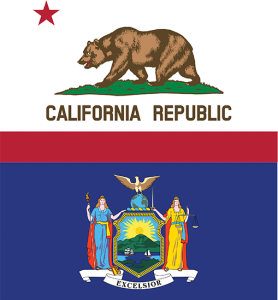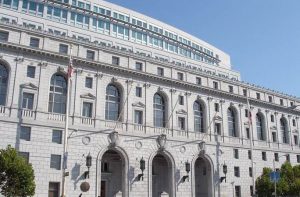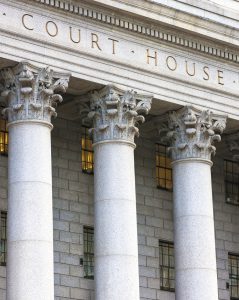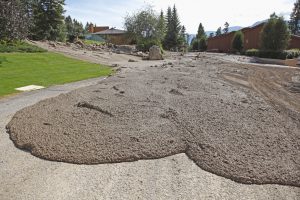 Four months ago, New York Governor Kathy Hochul signed the Adult Survivors Act (ASA) (S.66A/A.648A), creating a one-year window, beginning November 24, 2022, for adult survivors of sexual assault to bring civil claims against their alleged attackers which otherwise would have been time barred. On September 19, 2022, California Governor Gavin Newsom signed an equivalent law, the Sexual Abuse and Cover Up Accountability Act (AB-2777), which similarly suspends the statute of limitations for civil claims of sexual assault and other vicarious offenses arising out of that conduct starting January 1, 2023. These laws will likely generate a surge of litigation in California and New York, undoubtedly impacting many businesses operating there. Many, if not most, of those companies will look to insurers to furnish legal defenses and to financially support settlements or damage awards based on past policies.
Four months ago, New York Governor Kathy Hochul signed the Adult Survivors Act (ASA) (S.66A/A.648A), creating a one-year window, beginning November 24, 2022, for adult survivors of sexual assault to bring civil claims against their alleged attackers which otherwise would have been time barred. On September 19, 2022, California Governor Gavin Newsom signed an equivalent law, the Sexual Abuse and Cover Up Accountability Act (AB-2777), which similarly suspends the statute of limitations for civil claims of sexual assault and other vicarious offenses arising out of that conduct starting January 1, 2023. These laws will likely generate a surge of litigation in California and New York, undoubtedly impacting many businesses operating there. Many, if not most, of those companies will look to insurers to furnish legal defenses and to financially support settlements or damage awards based on past policies.
Articles Posted in California
California Federal Court Offers Clear Pathway to Coverage for Coronavirus/COVID-19-Related Business Interruption and Civil Authority Losses
 Since the beginning of the COVID-19 business interruption insurance coverage battles, insurers have labored to pour cold water on these claims—often hiring the biggest and wealthiest law firms in America to crush hair salons, motels, restaurants and bars represented by solo practitioners or lawyers with little prior insurance coverage experience. Not surprisingly, insurers have been successful in many of these early David-versus-Goliath cases (many of which involved policies with virus exclusions that the policyholders were seeking to avoid by pointing to government shutdown orders—and not the virus—as the sole cause of their loss), as we recently discussed. But the tide is turning as, increasingly, courts are applying the policies as written—rather than how insurers wished they had been written—and finding clear paths to coverage for COVID-19 claims. One such recent California federal district court case, Pez Seafood DTLA, LLC v. Travelers Indemnity Co., is a must-read for policyholders with COVID-19 losses, especially in California.
Since the beginning of the COVID-19 business interruption insurance coverage battles, insurers have labored to pour cold water on these claims—often hiring the biggest and wealthiest law firms in America to crush hair salons, motels, restaurants and bars represented by solo practitioners or lawyers with little prior insurance coverage experience. Not surprisingly, insurers have been successful in many of these early David-versus-Goliath cases (many of which involved policies with virus exclusions that the policyholders were seeking to avoid by pointing to government shutdown orders—and not the virus—as the sole cause of their loss), as we recently discussed. But the tide is turning as, increasingly, courts are applying the policies as written—rather than how insurers wished they had been written—and finding clear paths to coverage for COVID-19 claims. One such recent California federal district court case, Pez Seafood DTLA, LLC v. Travelers Indemnity Co., is a must-read for policyholders with COVID-19 losses, especially in California.
Ninth Circuit Rejects “Improper Erosion” Argument, Rejects Excess Carrier’s Refusal to Acknowledge Exhaustion of Underlying Policies
 Last month, the U.S. Court of Appeals for the Ninth Circuit awarded Pillsbury client Northrop Grumman a significant appellate victory, reversing an adverse decision from the U.S. District Court for the Central District of California on a question of first impression within the circuit. The court’s decision in AXIS Reinsurance Company v. Northrop Grumman Corporation not only restores Northrop Grumman’s access to millions of dollars in insurance coverage; it provides stability and predictability in insurance law by rejecting an excess insurer’s assertion of wide-ranging authority to “second-guess” coverage decisions made by underlying insurers.
Last month, the U.S. Court of Appeals for the Ninth Circuit awarded Pillsbury client Northrop Grumman a significant appellate victory, reversing an adverse decision from the U.S. District Court for the Central District of California on a question of first impression within the circuit. The court’s decision in AXIS Reinsurance Company v. Northrop Grumman Corporation not only restores Northrop Grumman’s access to millions of dollars in insurance coverage; it provides stability and predictability in insurance law by rejecting an excess insurer’s assertion of wide-ranging authority to “second-guess” coverage decisions made by underlying insurers.
California Bad Faith Claims Cannot Be “Slapped”
 The California Court of Appeal recently disposed of a novel attack on bad faith law launched by Zurich American Insurance Company. In Miller Marital Deduction Trust, et al. v. Zurich American Insurance Company, 2019 DJDAR (October 23, 2019), Zurich was called upon to defend a cross complaint arising in connection with long-tail pollution claims. Despite an extensive reservation of rights and a conflict of interest, Zurich refused to pay for independent counsel (Cumis counsel, in California parlance) and instead appointed panel counsel to defend. While the underlying environmental case was pending in federal court, the Millers filed a state court action against Zurich asserting that the insurer’s appointment of counsel answerable to the insurance company, in violation of the Millers’ right to independent counsel, constituted breach of contract and a breach of the covenant of good faith and fair dealing.
The California Court of Appeal recently disposed of a novel attack on bad faith law launched by Zurich American Insurance Company. In Miller Marital Deduction Trust, et al. v. Zurich American Insurance Company, 2019 DJDAR (October 23, 2019), Zurich was called upon to defend a cross complaint arising in connection with long-tail pollution claims. Despite an extensive reservation of rights and a conflict of interest, Zurich refused to pay for independent counsel (Cumis counsel, in California parlance) and instead appointed panel counsel to defend. While the underlying environmental case was pending in federal court, the Millers filed a state court action against Zurich asserting that the insurer’s appointment of counsel answerable to the insurance company, in violation of the Millers’ right to independent counsel, constituted breach of contract and a breach of the covenant of good faith and fair dealing.
California Supreme Court Sides with Policyholder in Critical Notice-Prejudice Case

In November 2018, we noted that the California Supreme Court had agreed to resolve Pitzer College v. Indian Harbor Insurance Company, a case that hinged on the importance and application of California’s notice-prejudice rule. On August 29, 2019, the court issued its decision: a policyholder-friendly ruling that opposes technical forfeitures of insurance coverage. Although further proceedings are needed to determine whether Pitzer will ultimately benefit from this victory, the principles it articulates are of immediate interest to policyholders in California and across the country.
California Puts Teeth into Confidentiality Provisions. Lawyer Gets Bitten.
 Disputed insurance claims often end in confidential settlements, as do many insured liabilities. But does it matter if lawyers sign a settlement agreement approving “as to form and content”? Last month, the California Supreme Court answered that question with a resounding “Yes!” In Monster Energy Company v. Schechter, a unanimous California Supreme Court ruled that a lawyer signing such an agreement may be bound by that agreement’s confidentiality provisions.
Disputed insurance claims often end in confidential settlements, as do many insured liabilities. But does it matter if lawyers sign a settlement agreement approving “as to form and content”? Last month, the California Supreme Court answered that question with a resounding “Yes!” In Monster Energy Company v. Schechter, a unanimous California Supreme Court ruled that a lawyer signing such an agreement may be bound by that agreement’s confidentiality provisions.
9th Circuit Seeks Guidance from California High Court on the Duty to Defend in TCPA Cases
 Does the coverage in commercial general liability (CGL) policies for violations of the right to privacy extend to unwanted intrusions, or is it limited to the disclosure of personal information to a third party? On a recent request for clarification from the U.S. Court of Appeals for the Ninth Circuit in Yahoo Inc. v. National Union Fire Insurance Company of Pittsburgh, PA, the California Supreme Court may be poised to answer this question under California law, which could have wide-ranging effects on companies seeking CGL coverage for Telephone Consumer Protection Act (TCPA) claims.
Does the coverage in commercial general liability (CGL) policies for violations of the right to privacy extend to unwanted intrusions, or is it limited to the disclosure of personal information to a third party? On a recent request for clarification from the U.S. Court of Appeals for the Ninth Circuit in Yahoo Inc. v. National Union Fire Insurance Company of Pittsburgh, PA, the California Supreme Court may be poised to answer this question under California law, which could have wide-ranging effects on companies seeking CGL coverage for Telephone Consumer Protection Act (TCPA) claims.
California Supreme Court to Decide Whether Its “Notice-Prejudice” Rule Supersedes Competing Law from Other States
 Before a court can resolve a dispute, it often needs to determine what law applies to that dispute. In certain insurance cases, that question will appear to have an easy answer. Some policies include explicit choice-of-law provisions indicating that they should be interpreted and applied according to the laws of a particular state, and such provisions are generally enforceable. But a case currently before the California Supreme Court highlights an important exception to this general rule and—should the policyholder prevail—would offer potential relief from the impact of stringent policy requirements.
Before a court can resolve a dispute, it often needs to determine what law applies to that dispute. In certain insurance cases, that question will appear to have an easy answer. Some policies include explicit choice-of-law provisions indicating that they should be interpreted and applied according to the laws of a particular state, and such provisions are generally enforceable. But a case currently before the California Supreme Court highlights an important exception to this general rule and—should the policyholder prevail—would offer potential relief from the impact of stringent policy requirements.
CGL Insurer Can’t Avoid Covering Employer for Negligent Hiring of Employee Who Committed Intentional Wrong, California Supreme Court Says
 By statute, California law holds that willful misconduct—where an insured intends to cause someone harm—is not insurable as a matter of public policy. For years, insurance companies have sought to expand this prohibition to exclude coverage where anyone acts deliberately, regardless of the intent of the insured, or the insured’s intent to cause harm.
By statute, California law holds that willful misconduct—where an insured intends to cause someone harm—is not insurable as a matter of public policy. For years, insurance companies have sought to expand this prohibition to exclude coverage where anyone acts deliberately, regardless of the intent of the insured, or the insured’s intent to cause harm.
Insurance Coverage for Mudslides Shifts into Focus
As James Taylor might say, I’ve seen fire and I’ve seen rain, but will my insurance cover the damage? California has certainly seen plenty of fire and rain. In the aftermath of the state’s most recent  devastating events, damages are estimated to top $5 billion. As Californians file insurance claims to cover their losses, coverage for flooding and mudslide damage has come into focus.
devastating events, damages are estimated to top $5 billion. As Californians file insurance claims to cover their losses, coverage for flooding and mudslide damage has come into focus.
 Policyholder Pulse
Policyholder Pulse


